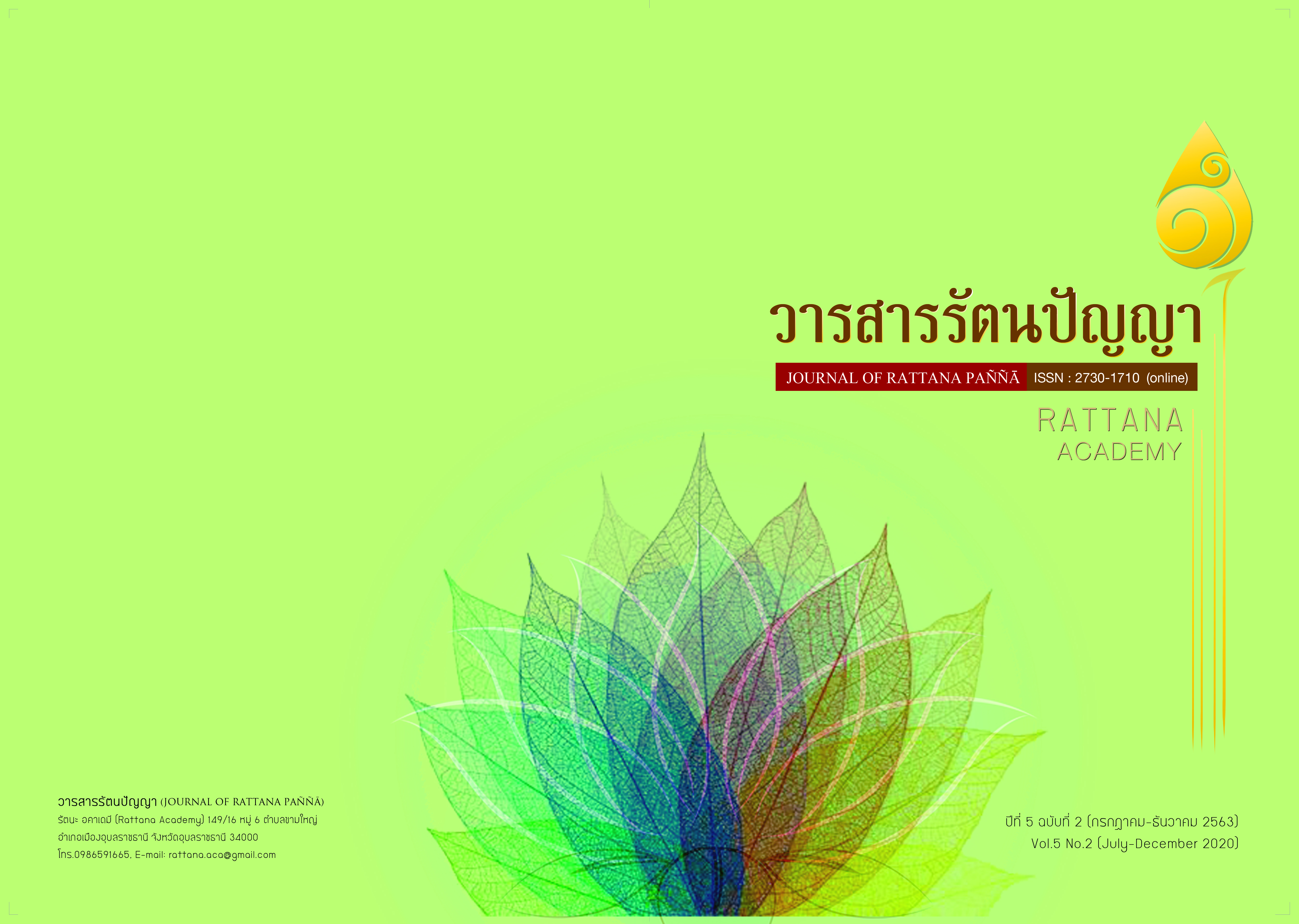FARMING BY AGRO-BUDDHIST
Main Article Content
Abstract
This academic article was a presentation of Buddhist Doctrines integrated in all stages of occupation farmers. The agricultural Buddhist Is the main Buddhist integrated in all stages of occupation farmers. This can also benefit both the farmers themselves. And society Efficiency and effectiveness, both tangible and intangible. The principles applied to the Lord Buddha gave the doctrinal principles that are consistent with the development of agriculture directly. And agricultural activities as a metaphor for the link. From what can be easily seen to what can be seen. This is a good practice (Best Practices) that can be deployed to cover the mission. And in practice in the everyday life of the farmers themselves and the individuals involved. Once adopted, it was deemed as a wise career. Religious and intellectual life brought in as a precaution. Can solve the problem and Development Both occupations and lifestyles. Affect both the individual level and the community level socioeconomic country.
Article Details
References
ธนิต อยู่โพธิ์. (2494). ภาวะเศรษฐกิจสมัยพุทธกาล. กรุงเทพฯ: สำนักหอสมุดกลาง มหาวิทยาลัยศิลปากร.
ประเวศ วะสี. (2530). พุทธเกษตรกรรมกับศานติสุขของสังคมไทย. กรุงเทพฯ: มูลนิธิหมอชาวบ้าน.
พระพรหมคุณาภรณ์ (ป.อ. ปยุตโต). (2552). การพัฒนาที่ยั่งยืน. กรุงเทพฯ: มูลนิธิโกมลคีมทอง.
. (2557). พุทธธรรมฉบับขยายความ. พิมพ์ครั้งที่ 39. กรุงเทพฯ: มหาวิทยาลัยมหาจุฬาลงกรณราชวิทยาลัย.
พระเทพรัตนมุนี (สายพงศ์ อโนมปญฺโญ/กองสินธุ์). (2557). การเกษตรแนวพุทธเพื่อแก้ปัญหาเศรษฐกิจชุมชน. วารสารช่อพะยอม. 25(1), 53-64.
. (2559). การเกษตรแนวพุทธเพื่อแก้ปัญหาเศรษฐกิจชุมชน. วารสารปัญญาปณิธาน. 1(2), 34-47.
พระไพศาล วิสาโล. (2536). พุทธเกษตรกรรมกับการพัฒนาหมู่บ้าน. ใน ภูมิปัญญา ชาวบ้านกับการพัฒนาชนบท เล่ม 1. กรุงเทพฯ: อมรินทร์ พริ้นติ้ง แอนส์ พับลิชชิ่ง.2536.
มหาจุฬาลงกรณราชวิทยาลัย. (2539). พระไตรปิฎกภาษาไทยฉบับมหาจุฬาลงกรณราชวิทยาลัย. กรุงเทพฯ: โรงพิมพ์มหาจุฬาลงกรณราชวิทยาลัย.


